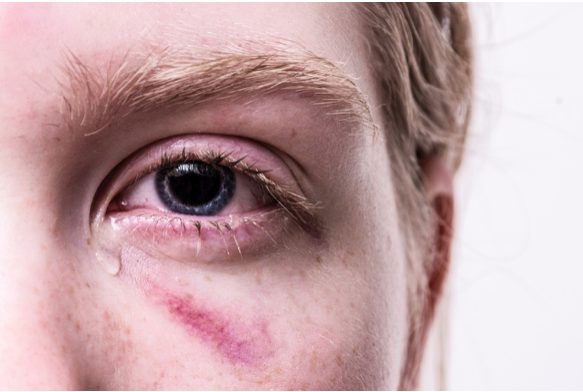
Genetics, environment, and upbringing can all play a role in a person’s chances of developing addiction.
But for nearly two-thirds of those with current substance abuse disorders, there’s one common link—trauma (1).
What exactly is trauma, and why is it so closely linked with future substance abuse disorders? Let’s take a closer look.
What is Trauma?
Trauma is much more than a difficult experience. In fact, trauma can result from a major, life-altering tragedy such as a car accident, or it can result from witnessing frequent arguments between dysregulated adults during childhood.
Big or small, all traumas have something in common. They trigger high levels of stress hormones like cortisol and adrenaline— the same chemicals released during your body’s fight-or-flight response— and they can get “stuck” in the brain (1). With unprocessed trauma, your brain can lose its ability to decipher between actual threatening events and the mundane circumstances of everyday life.
Even when the original stressor is gone, the aftereffects linger— often leading to depression, anxiety, and post-traumatic stress disorder (PTSD) (2).
Common Types of Trauma
Any situation that causes emotional distress can lead to trauma. When it comes to future addiction risk, common types of trauma include (1):
- Sexual assault or harassment
- Physical abuse
- Domestic violence (witnessing it or being directly subjected to violence)
- Emotional, mental, or verbal abuse
- Parental neglect
- Bullying
- Tragedies such as car accidents, fires, natural disasters, etc.
- Loss of a parent or loved one
- Terminal illness (experiencing it or watching a loved one with it)
The Link Between Trauma and Addiction
Research is clear on the link between trauma and addiction. One of the most notable studies first introducing the concept of Adverse Childhood Experiences (ACEs) exposed this association between childhood trauma and later substance abuse disorders.
In the study, ACEs referred to traumatic experiences within the first 18 years of life, often using the traumas listed above as examples. As the numbers of ACEs increased, so did the risk of alcohol and drug use into adulthood (3).
But why? It all comes down to the way the nervous system develops under repeated stress.
In those who have suffered trauma, the body is likely in a frequent or constant state of “fight-or-flight” hypervigilance. Their body’s natural methods of producing “feel good” or “calming” hormones may also be disrupted due to trauma. Alcohol, opioids, and other drugs offer a quick, temporary relief, slowing down the nervous system or providing feelings of pleasure and calmness. Opioids, specifically, may “numb” unpleasant feelings resulting from life’s traumas.
It’s important to remember, however, that the “relief” offered from these types of substances are always temporary. In many cases, they exacerbate underlying issues and deteriorate physical and mental health even further.
See also: Six Signs You Could Benefit From Talk Therapy
If You Have Unresolved Trauma, Help is Available
Trauma can significantly impact your thoughts, behavior, and ability to cope with all aspects of life. Fortunately, no matter how long it’s been since you’ve experienced it, it’s possible to process trauma in healthy ways and lessen its grip on your life.
If you or someone you know is suffering, help is available. Browse our resources to find out how you can get started today.
For emergencies, call or text (304) 356-5840 for 24/7 support or visit www.help4wv.com.
Learn more about GameChanger.
Created in 2018, GameChanger is a student-powered movement with focus on substance misuse prevention among youths. We connect students, educators, and communities with education, training, coaching, and support services to prevent opioid and other drug use before it starts.
Resources
- Why Trauma Often Leads to Addiction. The Gateway Foundation. Accessed from: https://www.gatewayfoundation.org/addiction-blog/trauma-and-addiction/#type-trauma
- The Link Between Trauma and Female Addiction. Behavioral Health Centers. 15 September 2017. Accessed from: https://behavioralhealth-centers.com/blog/the-link-between-trauma-and-female-addiction/?utm_source=google&utm_medium=cpc&utm_campaign=&utm_content=&utm_term=&gclid=CjwKCAjwgqejBhBAEiwAuWHioN2TUal0vIRiDgp7bzg6p6GhMxdDHCBCYJJCYoD5Qmn0rYMUolyoHBoC6yIQAvD_BwE
- Why Trauma Can Lead to Addiction. Giordano, Amanda L. Psychology Today. 25 September 2021. Accessed from: https://www.psychologytoday.com/us/blog/understanding-addiction/202109/why-trauma-can-lead-addiction